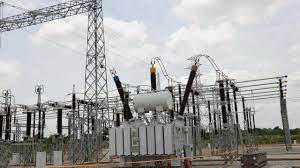23 March 2015, Lagos – The 50 per cent reduction in electricity tariff by the Nigerian Electricity Regulatory Commission is politically wise but makes no business sense, economists and power sector experts have said.
According to them, the decision will result in tough financial moments for the power generation and distribution companies as most of the firms are cash -strapped.

A renowned economist and Chief Executive Officer, Financial Derivatives Company, Mr. Bismarck Rewane, said the timing had raised eyebrows.
NERC had last week announced the 50 per cent slash and explained that it became necessary after receiving a barrage of complaints from electricity consumers.
It said it also decided to slash the tariff after it figured out that the technical and commercial losses incurred by the power firms were not meant to be passed on to consumers, among other reasons.
But reacting to the development, Rewane said, “The Federal Government has reduced the electricity tariff by 50 per cent, a move that could prove to be politically wise but business foolish. The timing of the decision has raised eyebrows as the government faces a widening fiscal gap.
“Consumers are supposed to celebrate the cut in electricity costs but a price cut with no supply is a pie in the sky.
“The initial price increase was part of the gradual normalisation of pricing to support the privatisation of the power sector. The Discos and Gencos have been struggling to break even. This arbitrary slash in tariff now puts that industry in jeopardy even though this could be temporary.”
He explained that the 50 per cent slash in the Multi Year Tariff Order occurred at a time when the firms were complaining that the tariffs were too low.
Rewane said power supply from the national grid had dropped below 3,500 megawatts and the Federal Government was struggling to bridge the widening fiscal gap following the sharp decline in oil prices and revenues.
He argued that the government had initially set up the MYTO as part of the deregulation and privatisation process.
This, he stressed, was aimed at ensuring an efficient pricing system, which was the reason the tariffs were increased in January this year.
The economist said, “Two months later, the MYTO has now been slashed in a manner that is both disruptive and destructive to business and investment decisions.
“This type of action is not restricted to the power sector but cuts across many others. For example, the recent cut in the pump price of petrol was done without considering outstanding inventory. This led to substantial losses by retailers and downstream operators. “To balance the scale, the reduction in the MYTO is beneficial to the end user (consumers, corporate bodies and business owners) as this reduces the pressure on their disposable income.”
Rewane also said the development would result in tougher times for power sector investors as they would bear the brunt of the tariff reduction.
He said, “A significant number of the Discos and Gencos are cash-strapped and accessing bank credit is a herculean task. The approved Power and Airline Intervention Fund of N288bn by the Federal Government is a drop in the ocean.
“Therefore, the jury is out on the implications of these policies on the efficiency and sustainability of the Nigerian power sector. The knee-jerk reaction of policymakers under political pressure will negatively affect the attitude of potential investors in other projects. Once elections are approaching, the decisions usually made are politically wise but business foolish.”
– Punch



